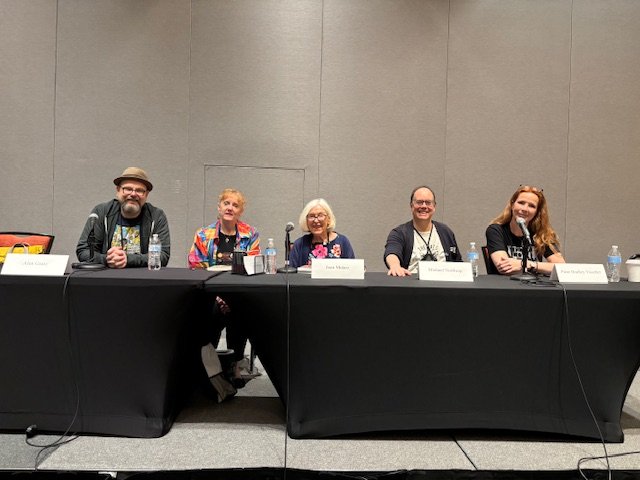Writing is mostly a solitary effort, and marketing, book promotions, and networking can be a challenge. when it’s not in your comfort zone to socialize or to put yourself out there. And it’s even harder during this pandemic. But being connected is important. Here are some ideas I’ve learned throughout the years to help you meet, connect, and strike up conversations.
Cultivate the Relationships You Have - Make the time to reach out and connect with the relationships you already have. These are your friends, family, and acquaintances. Call, text, Zoom, post on social media, or drop them a letter. Reach out and connect with the people who care about you.
Build Your Social Media Followers - Social media can be overwhelming and time-consuming. Set aside some time each day to connect on your sites. You need to be an active participant. The “social” part is key here. Don’t just post and run. Your readers/followers want to interact with you. Ask and answer questions. Post comments and share others’ information.
Work on expanding your followers. All sites have a “you might know” option where it offers suggestions of who to follow. Find authors like you and look at who follows them and who they follow.
Use Hashtags - Search for hashtags that interest you. Look at the posts and start a conversation with someone new. Follow people who have the same interests. Share and comment on posts you like.
Celebrate with Others - Share others’ celebrations. Be genuine. And don’t hijack the conversation to make it about you.
Allocate Time - It’s easy to get sucked in your sites, and you can scroll for hours. Schedule some time daily and stick to your plan. If it’s too much to do more than one platform, pick one and focus on that. Make sure that you interact.
Don’t respond to comments three weeks later. I check my key social media sites in the morning, at lunch, and in the evening to make sure that I am responding in a reasonable amount of time. Find a routine that works for you. Every hour is probably too much, and once a week is probably not often enough.
Join Groups - Look for clubs or groups connected to your interests. These are great places to be a part of the conversation. And don’t limit yourself to just books. Make sure that you participate in groups in your own community (e.g. neighborhood associations, places of worship, alumni groups, neighborhood Facebook groups, charities, volunteer organizations, etc.)
Find a Writers’ Group - Find a writers’ group for your genre. These offer many opportunities for networking, learning, and special projects.
Volunteer - Volunteer your time. Organizations are always in need of people to serve on committees and to help with events. This is such a great opportunity to give back, and you will meet so many interesting people.
Tag You’re It - Post about public seminars and events you attend. Post about interesting books, movies, and shows. Tag the speaker or the people involved even if you don’t know them. You’ll be surprised at the number of responses you get, and it often starts a conversation.
Post about events you’ll be attending and tag people. After a public event, post pictures (even if it’s a Zoom screen) and tag the panel or the speaker. (Just a note of caution: we have a lot of law enforcement speakers at our mystery events. ALWAYS ask before you take and post a picture. Sometimes there are professional and security reasons, and they don’t want to be identified publicly.)
#FF or #WW - If you want to start a conversation on Twitter, use the Follow Friday (#FF) or Writer Wednesday (#WW) hashtags. Post a meme or a gif and list a bunch of accounts that you think people should follow. People will comment, add other names, and share. It’s a great way to expand your reach and pick up followers.
Ask Questions - If you want to strike up a conversation on any platform, ask a question. Make sure to add related hashtags. Examples: It’s the weekend, what are you reading? It’s snowing here, what’s the weather like outside your window?
Look at the lists online of fun “holidays” and post a picture or a meme for topics related to your book.
Ask for advice or recommendations. People are always willing to assist.
Help Others - People are always looking for recommendations and information. If you can help, reach out to them. Share the knowledge and resources you have.
Tag Your Friends - If you see a post on a topic that would be of interest to a friend, tag that person in the comment with a brief note. You’re helping to make connections.
I love looking at all the “Bookstagram” and “Book Stack” photos that readers put on Instagram. If I see a friend’s book in the picture, I always tag them in a comment. You’d be surprised at the number of times authors didn’t know a reader had highlighted them.
Keep Your Contacts Organized - It’s important to keep contact information where you can access it. You never know when you’ll need to reach out to someone.
When someone gives me a business card, I write on the back where I met them or who introduced us. When I’m back at my desk, I transfer the contact to my email address book with enough notes to jog my memory later.
I also have a spreadsheet where I keep subject matter expert (SME) contacts that I meet. You never know when you or someone else will need the connection. I attend a lot of workshops and training sessions, and the speakers often offer to be a resource in the future.
Just Do It - It is not in a lot of people’s nature to strike up or jump into conversations with strangers. It’s hard, but make yourself try it. Find some online conversations and jump in with your comments or questions. Or start a conversation on your site.
It is difficult, but you can learn to network. And you improve the more you do it.
































